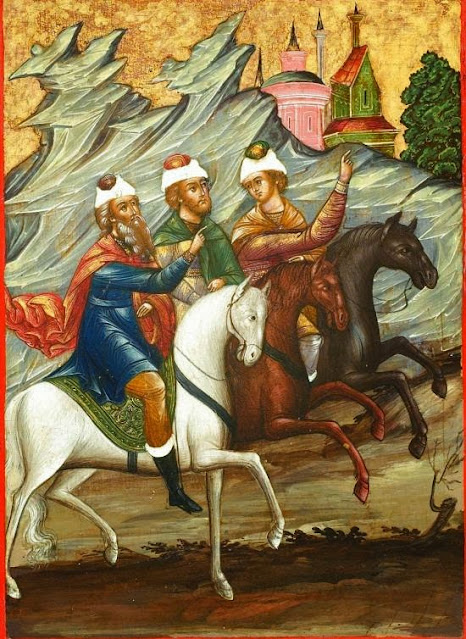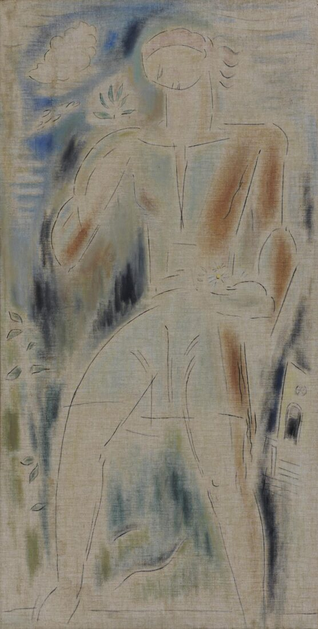Zoe Karelli | Journey of the Magi
Russian icon, 'The Three Magi' (19th c)
Poet, playwright and literary translator – Zoe Karelli was born in Thessaloniki, Greece in 1901. She is regarded as a pioneer feminist in her country, helping to introduce many women poets into the Greek canon. Her work is mainly concerned with the inner life and existential questions, but it can often be read in reaction to the horrors of World War II, the Occupation and the Greek Civil War that followed between the Greek Communist Party and the British-backed forces of the Greek government.
Her poem ‘Journey of the Magi’, written in 1955, re-imagines the story from the point of view of one of the magi. In terms of style and mood, it echoes T.S. Eliot’s poem of the same title, written in 1927, and it is possible that Karelli was aware of it or had even read it. She certainly knew of Eliot’s work and had translated into Greek his plays The Family Reunion and The Cocktail Party.
Karelli's poem is not a celebration of joy and innocence; rather, it depicts notions of alienation and regret and through it runs a pulpable feeling of powerlessness in a world that has changed. Like Eliot, Karelli here chooses a speaker who is reflective and sad, who has lost his spiritual bearings and whose recounting of the story is born out of emotional distress. And yet, although we get the impression that he is speaking to the reader, we wonder
whether, in his effort to impose order and meaning via story-telling, he
becomes so entangled in his own emotions that he retreats within,
murmuring to some indistinct internal voice.
Journey of the Magi
There should have been three of us.
If it wasn’t for such darkness,
perhaps I would have understood why
I am left so alone.
How I have forgotten!
The journey must again
begin anew.
When did we set out, then, the three of us?
Or had we perhaps met, at some point…
For a time, we travelled together,
whilst a bright star led us.
Did it change the route or is it me who
can no longer see anything?
Where am I, at such a time –
hard, relentless, difficult,
I – troubled and rushed.
Has perhaps the time come?
How am I to know!
Where are the gifts?
We had prepared gifts then
gently, quietly
gifts from us humble people, gold
incense and myrrh we would once
bring to him in awe and wonder.
Now in this time
steel, thunder and fire.
There were three of us,
now I see no one else
and I feel my hands
empty and at times heavy.
Then it was kings to the king
of the world, now no one
rules with conviction.
Heavy is the darkness. Who shows me the way?
Without companionship,
Without a star I journey.
What shall I offer as a sign of reverence
and submission? We, the people
of these tempestuous times,
what can we joyously give him
that is ours? We need
to find an offering.
There’s no gain for our soul
from such a struggle.
Gold, incense and myrrh
then, simple gifts.
The uncompleted offering troubles us.
Now that I am moving in the dark,
without the joy of gifts, alone,
I have only myself to give.
In dejection I walk.
(My translation ~ December 2023)
Notes
1. The image of 'The Three Magi' is from a rare Russian icon, made at the beginning of the 19th century. It depicts the three wise men as an old man, a middle-aged man and a young man ( See https://leipsanothiki.blogspot.com/2014/01/234.html).
2. You can read the Greek text, under the title «Το ταξίδι των Μάγων», here.



Comments
Post a Comment